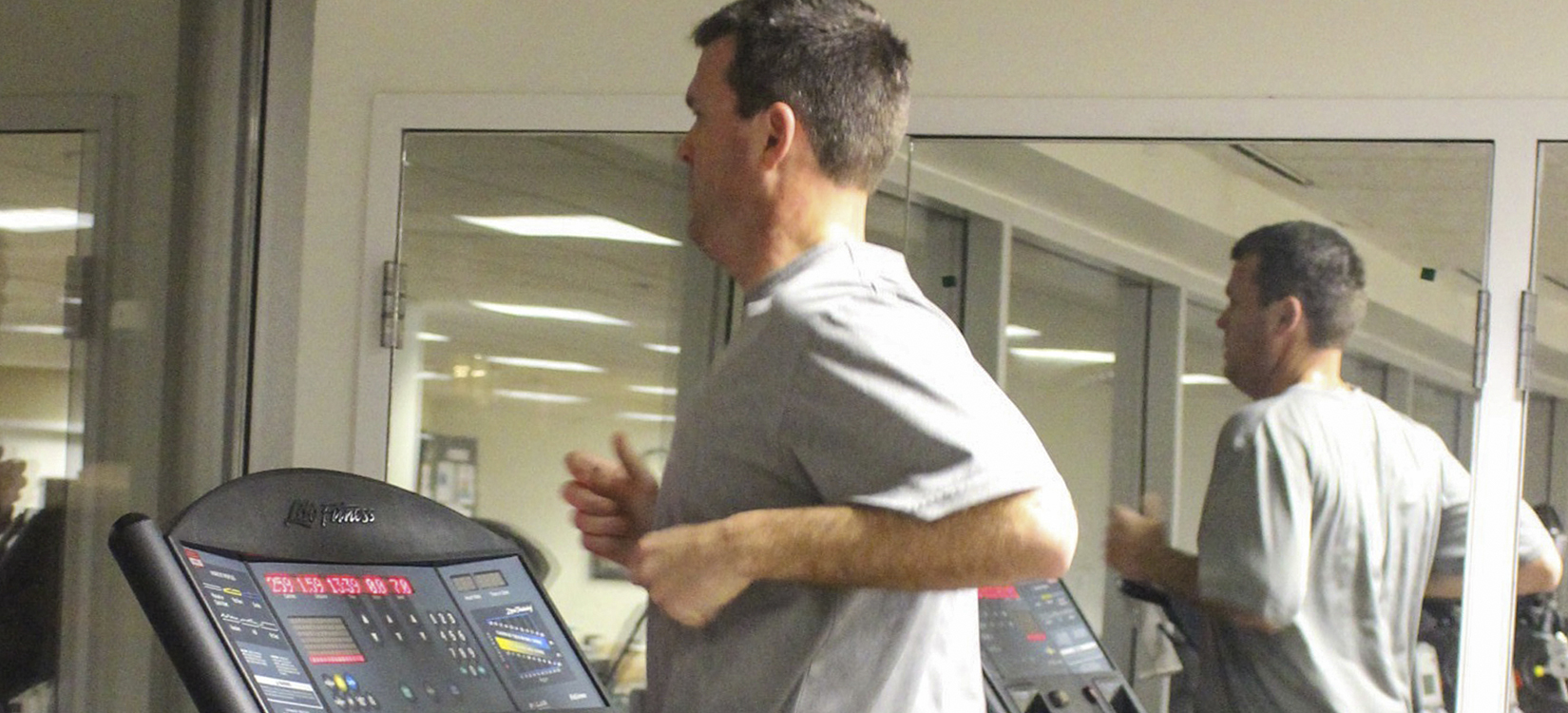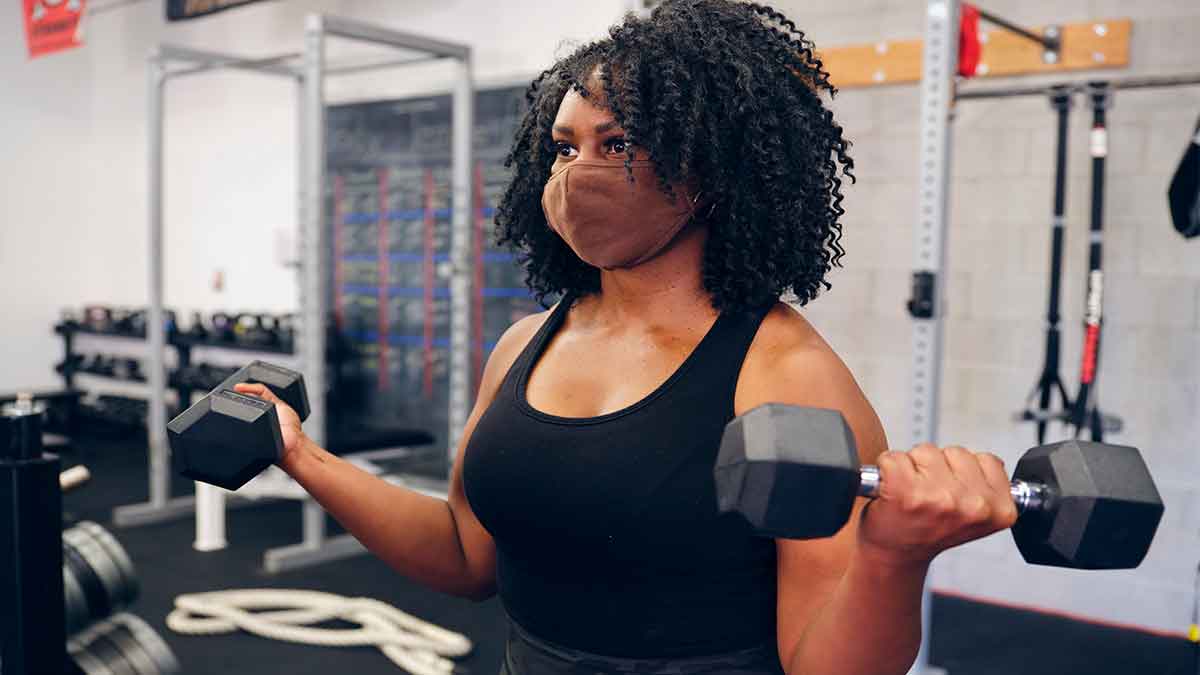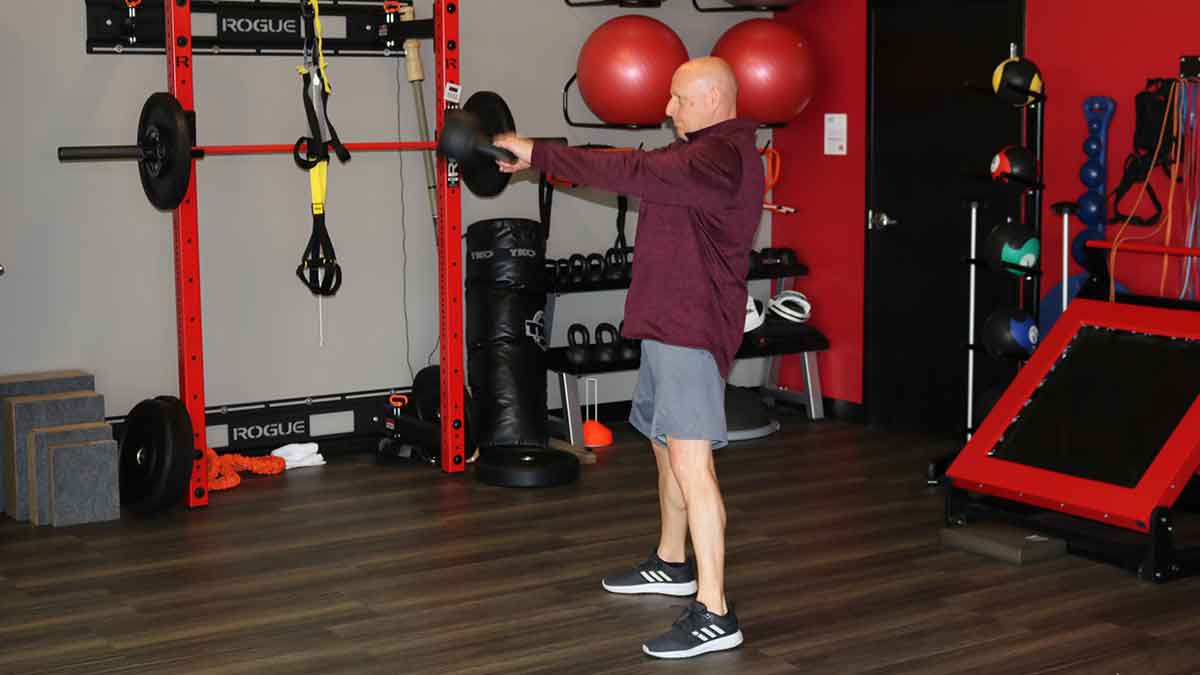4 fitness mindsets that are holding you back
 James Borchers, MD, a sports medicine physician at Ohio State, commits to running 5-7 miles six days a week, and plays tennis and golf for the health benefits and for fun.
James Borchers, MD, a sports medicine physician at Ohio State, commits to running 5-7 miles six days a week, and plays tennis and golf for the health benefits and for fun.
Caring for your own health as much as you care for your family’s is the key to a balanced lifestyle – and to being able to look after your loved ones.
The sports medicine team here at The Ohio State University Wexner Medical Center is expert in helping you create a healthy lifestyle that gets you moving in ways you enjoy. We asked for their best advice that could apply to anyone, from busy parents on the go to seasoned athletes.
It turns out that the best thing you can do for yourself is to let go of myths and self-defeating beliefs. Here are a few mindsets that could be holding you back:
1. “I’m not an athlete, so what’s the point?”
We were made to move. Challenging your body means improving your health.
“Patients often think if they are not the best at an activity or not ultra fit that there is no reason to exercise,” says James Borchers, MD, a former Ohio State football player turned sports medicine physician.
But even if you’re never going to be an elite athlete, moving and challenging your body is incredibly important for your overall health.
Dr. Borchers commits to running 5-7 miles six days a week, and plays tennis and golf for the health benefits and for fun. But if a daily 30-minute walk is all you want to commit to, that’s worth doing! If you like to multitask, you can set a great example and foster family bonding by scheduling a weekly hike, bike ride or jog around the neighborhood with your kids. And when you’re done, give yourself a pat on the back for accomplishing something that day.
2. “I’m terrible at this exercise, I’ll just skip it.”
If you don’t practice a skill, you can’t get better at it.
Many people find pull-ups difficult, but that doesn’t mean they shouldn’t try to get better at them. A pet peeve of Dan Inglis, director of Sports Performance at Ohio State, is when people – even top athletes – are only willing to work on what they’re already good at.
Sure, it feels great to breeze through a workout you’ve mastered, but your fitness routine should help you overcome your weaknesses, too. It’s all about self-improvement.
3. “Rest? What’s that?”
You can’t improve if your body can’t restore itself.
For some fitness enthusiasts, rest is a four-letter word. The drive to push harder, run farther and lift more is great for staying on track and achieving new personal bests, but when you’re training hard, knowing when to rest is equally important.
“When something is hurting, your body is telling you that you are breaking it down faster than it can rebuild itself,” says Melissa Gallatin, PT, AT, OCS, a physical therapist specializing in endurance sports. “When you rest, your body rebuilds itself and it can get stronger.” Proper rest helps prevent injury, stagnation and just plain burnout. So go ahead, schedule your rest days just like you would your training days, and listen to your body when it’s telling you it needs some time to recover.
4. “Only bodybuilders need to lift weights.”
Weight training is your friend, even if big muscles aren’t your goal.
Physical Therapist Claire Plummer PT, AT, and Performance Coach Dan Inglis agree: everyone should add weight training to their fitness routine. From weight management to bone health to simply functioning every day, weightlifting produces amazing benefits.
In particular, many women refuse to lift heavy weights for fear of getting “bulky.” But according to Plummer, “unless women are doing something to alter their natural body chemistry, or specifically working out to build muscle, this is an extremely unlikely occurrence.” Plummer’s own routine includes weight training in addition to cardio and yoga, and that keeps her fit enough to tackle triathlons, teach Irish step dancing and play in a recreational soccer league.
So, once you get the proper form down, pick up those heavy dumbbells and bars. Your body will thank you.
No matter where you are in life – whether you’re a seasoned amateur athlete, a parent looking to get back in the game or someone who’s just starting out – banishing these four mindsets can help you achieve your fitness goals, improve your long-term health and maybe even pick up a few new skills along the way. Good luck!
Our sports medicine experts can help design the ideal fitness program for you. Schedule an appointment with our team by calling 614-293-3600.




